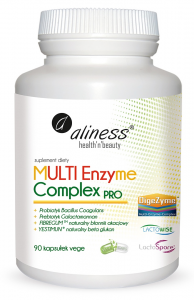Are you sure you want to perform this action?
-
Brands
-
 4+ Nutrition
4+ Nutrition
-
 6Pak Nutrition
6Pak Nutrition
-
 7Nutrition
7Nutrition
-
 A-Z Medica
A-Z Medica
-
 ActiHealth
ActiHealth
-
 Activlab
Activlab
-
 Aliness
Aliness
-
 AllNutrition
AllNutrition
-
 Amix
Amix
-
 Applied Nutrition
Applied Nutrition
-
 Aura Herbals
Aura Herbals
-
 BSN
BSN
-
 BetterYou
BetterYou
-
 Bio-Kult
Bio-Kult
-
 Biofarmacija
Biofarmacija
-
 Biotech Usa
Biotech Usa
-
 Body Attack
Body Attack
-
 Brain Gains
Brain Gains
-
 Candle Brothers
Candle Brothers
-
 Candle-Lite
Candle-Lite
-
 Candleberry
Candleberry
-
 Carlson Labs
Carlson Labs
-
 Cellucor
Cellucor
-
 Child Life Nutrition
Child Life Nutrition
-
 Cobra Labs
Cobra Labs
-
 Colonial-Candle®
Colonial-Candle®
-
 Controlled Labs
Controlled Labs
-
 Cure Support
Cure Support
-
 Doctor's Best
Doctor's Best
-
 Dorian Yates
Dorian Yates
-
 Dr. Mercola
Dr. Mercola
-
 Dymatize
Dymatize
-
 EkaMedica
EkaMedica
-
 EkoToTu
EkoToTu
-
 Enzymedica
Enzymedica
-
 Essence Nutrition
Essence Nutrition
-
 Essensey
Essensey
-
 Evlution Nutrition
Evlution Nutrition
-
 Evolite Nutrition
Evolite Nutrition
-
 Extrifit
Extrifit
-
 FA Nutrition
FA Nutrition
-
 FitMax
FitMax
-
 Floradix
Floradix
-
 ForMeds
ForMeds
-
 Forest Vitamin
Forest Vitamin
-
 GAL
GAL
-
 Garden of Life
Garden of Life
-
 Gaspari Nutrition
Gaspari Nutrition
-
 Genetic Nutrition
Genetic Nutrition
-
 Go On Nutrition
Go On Nutrition
-
 Goli Nutrition
Goli Nutrition
-
 Gymax
Gymax
-
 HERB
HERB
-
 Haribo
Haribo
-
 Haya Labs
Haya Labs
-
 Health Thru Nutrition
Health Thru Nutrition
-
 Healthy Origins
Healthy Origins
-
 Hepatica
Hepatica
-
 Himalaya
Himalaya
-
 Hiro.lab
Hiro.lab
-
 Holland & Barrett
Holland & Barrett
-
 IHS Technology
IHS Technology
-
 Iconfit
Iconfit
-
 Immortal Nutrition
Immortal Nutrition
-
 Intenson
Intenson
-
 Iridium Labs
Iridium Labs
-
 Isostar
Isostar
-
 JNX Sports
JNX Sports
-
 Jarrow Formulas
Jarrow Formulas
-
 KIKI Health
KIKI Health
-
 Kenay AG
Kenay AG
-
 Kevin Levrone
Kevin Levrone
-
 LABS212
LABS212
-
 Lab One
Lab One
-
 Life Extension
Life Extension
-
 MHP
MHP
-
 MST Nutrition
MST Nutrition
-
 Manly Indulgence
Manly Indulgence
-
 Mars
Mars
-
 Medica Herbs
Medica Herbs
-
 Medverita
Medverita
-
 Megabol
Megabol
-
 Metolius
Metolius
-
 Mg12
Mg12
-
 MuscleMeds
MuscleMeds
-
 MuscleTech
MuscleTech
-
 Mutant
Mutant
-
 MyVita
MyVita
-
 Myprotein
Myprotein
-
 Natrol
Natrol
-
 Natural Factors
Natural Factors
-
 Nature's Answer
Nature's Answer
-
 Nature's Way
Nature's Way
-
NaturesPlus
-
 Naughty Boy
Naughty Boy
-
 NeoCell
NeoCell
-
 Nordic Naturals
Nordic Naturals
-
 Norsan
Norsan
-
 Now Foods
Now Foods
-
 Nutrend
Nutrend
-
 Nutrex
Nutrex
-
 Nutrex Hawaii
Nutrex Hawaii
-
 NutriCology
NutriCology
-
 Nutricost
Nutricost
-
 Oleofarm
Oleofarm
-
 Olimp
Olimp
-
 Oly
Oly
-
 Optimum Nutrition
Optimum Nutrition
-
 Orthomol
Orthomol
-
 Osavi
Osavi
-
 OstroVit
OstroVit
-
 Palacio
Palacio
-
 Panaseus
Panaseus
-
 Parfums de Marly
Parfums de Marly
-
 PharmaFreak
PharmaFreak
-
 PharmoVit
PharmoVit
-
 Planet Ayurveda
Planet Ayurveda
-
 Power System
Power System
-
 Progress Labs
Progress Labs
-
 Puritan's Pride
Puritan's Pride
-
 Purple River
Purple River
-
 QNT
QNT
-
 Real Pharm
Real Pharm
-
 Redcon1
Redcon1
-
 Reflex Nutrition
Reflex Nutrition
-
 Remedy Relief
Remedy Relief
-
 Revive
Revive
-
 Rich Piana 5% Nutrition
Rich Piana 5% Nutrition
-
 Rule 1
Rule 1
-
 SAN
SAN
-
 Sante
Sante
-
 Scitec Nutrition
Scitec Nutrition
-
 Scivation
Scivation
-
 SiS
SiS
-
 Skill Nutrition
Skill Nutrition
-
 Skoczylas
Skoczylas
-
 Smart Shake
Smart Shake
-
 Solaray
Solaray
-
 Solgar
Solgar
-
 Source Naturals
Source Naturals
-
 Swanson
Swanson
-
 Syntrax
Syntrax
-
 Targroch
Targroch
-
 Tested Nutrition
Tested Nutrition
-
 Thorne Research
Thorne Research
-
 Tisserand Aromatherapy
Tisserand Aromatherapy
-
 Trace Minerals
Trace Minerals
-
 Trec Nutrition
Trec Nutrition
-
 UNS
UNS
-
 USP Labs
USP Labs
-
 UltraVit
UltraVit
-
 Universal Nutrition
Universal Nutrition
-
 VP laboratory
VP laboratory
-
 VPLab
VPLab
-
 Vital Proteins
Vital Proteins
-
 Vitalmax
Vitalmax
-
 WISH Pharmaceutical
WISH Pharmaceutical
-
 Warrior
Warrior
-
 Warrior Labs
Warrior Labs
-
 Weider
Weider
-
 Woodbridge
Woodbridge
-
 Yango
Yango
-
 Zein Pharma
Zein Pharma
-
-
Vitamins & Herbs
- Antioxidants
- Bee Products
- Calmness and Self-Control
- Cardiovascular Support
- Cholesterol Level Support
- Detox & Liver Health
- Digestion
- Eye Health
- Fish Oil, Flax Oil & Omegas
- GABA
- Glucose Level Support
- Greens & Superfoods
- Herbs & Phytotherapy
- Joint Support
- Kids Health
- Memory & Cognitive Support
- Men's Health
- Minerals
- Mushroom Supplements
- Pet's Health
- Sleep Support
- Urinary Tract Health
- Vitamins A-z
- Women's Health
- Sports Nutrition
- Scented Candles
- Body & Beauty
- Sports apparel and Accessories
- On Sale


Comments Aliness Multi Enzyme Complex PRO